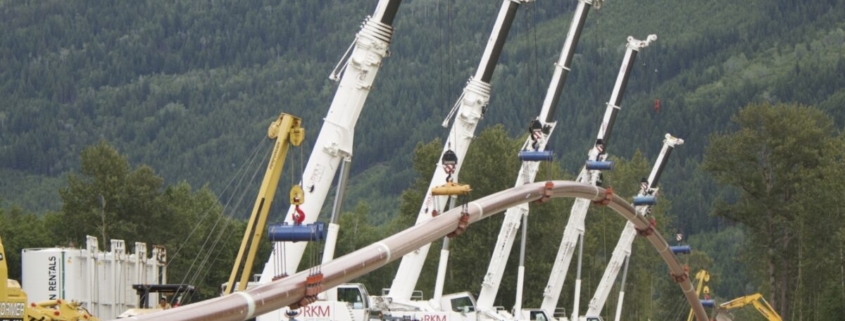Why Canada Must Build More Tidewater Pipelines: Both Oil and Gas
This article was originally published in The Globe and Mail.
During Prime Minister Mark Carney’s July Stampede visit to Alberta, he said a new oil pipeline to B.C.’s coast will likely be declared a national priority. Still, some Canadians are asking: Why build another pipeline to the West Coast? Don’t we already have enough?
It’s a similar situation for another commodity. While these questions arise less often when it comes to shipping natural gas to Asia – especially as we celebrated our first LNG shipment from the West Coast on the eve of Canada Day – some Canadians still question whether expanding the commodity’s exports is essential to fulfilling the country’s ambitions as an energy superpower.
But the real question is: How can Canada – the world’s fourth-largest oil producer, behind only the United States, Saudi Arabia, and Russia and the fifth-largest producer of natural gas – not be already recognized as an energy superpower? The reason is simple: We fail to export enough of our oil and gas to global markets. As a result, we forfeit both influence and autonomy – and we undermine our own economy.
To borrow U.S. President Donald Trump’s style: ABSOLUTELY, we need more pipelines! Canada needs new oil and gas pipelines to tidewater. These projects are both politically and strategically vital, ranking among the most consequential nation-building initiatives the country can pursue.
Let’s begin with one of the most debated topics: building a new oil pipeline to Canada’s West Coast. Most Canadians know the federal government completed the Trans Mountain Expansion, which added 590,000 barrels per day of export capacity last year. This additional access to tidewater has already strengthened Canada’s negotiating position with U.S. buyers.
Now that we have alternative export options, American refiners must pay Canadian producers a more competitive price. The pipeline has brought more of the economic upside home, lifting prices by $4 to $7 per barrel and adding an estimated $7-billion to $12-billion in annual revenue for Canadian producers.
These higher earnings translate into more tax revenue and provincial royalties that benefit Canadians nationwide. But sustaining this pricing advantage over the long term – and ensuring American buyers pay fair value – will require more pipeline capacity than the modest boost from Trans Mountain, which may be fully utilized in a few years.
But the benefits go beyond economics. Expanding Canadian export capacity strengthens Canada’s relevance, influence, autonomy and trade relationships at a critical time. Would Mr. Trump have threatened a 25-per-cent tariff on Canadian oil earlier this year if Canada had more diversified export routes? Would trade negotiations play out differently if Canada held greater leverage?
Turning to natural gas: Expanding Canadian LNG exports to tidewater is just as essential to our ambitions of becoming an energy superpower. This strategy delivers the same strategic advantages as oil pipelines alongside substantial economic benefits.
In 2024, Canadian natural gas sold for about one-half of the U.S. price – effectively giving it away. However, with the recent launch and potential expansion of Canadian LNG exports, we have an opportunity to bring the economic benefits of these resources back to Canadians.
For example, using a conservative assumption, if all Canadian natural gas priced just $1 per gigajoule higher as a result of tidewater access, producers would gain an additional $7-billion per year – benefiting companies and citizens in B.C., Alberta and across Canada. And this doesn’t even factor in the additional growth in gas and liquids production that new export terminals can unlock.
To be an energy superpower, a country needs to export energy to many nations. Canada isn’t there yet. To unlock more value, boost security and build real influence, we need to get more oil and gas to tidewater. All Canadians stand to gain.
So, the next time you’re asked whether Canada needs to expand oil and natural gas exports to become an energy superpower, the answer is a resounding YES! Thank you for your attention to this matter!


